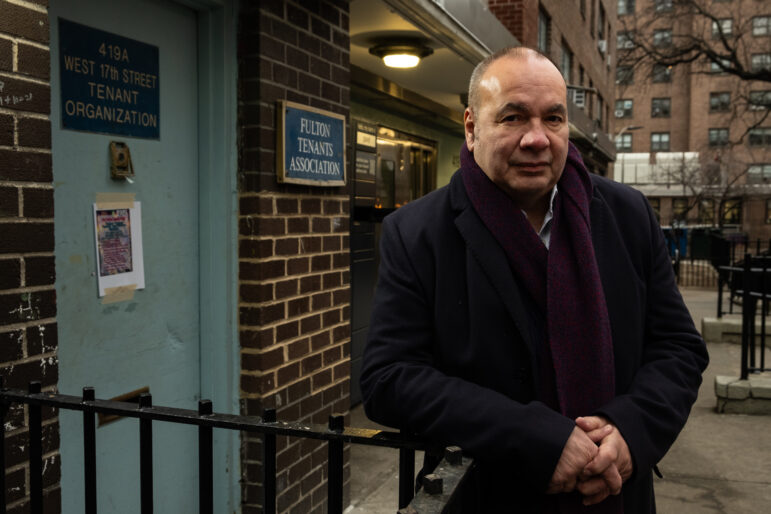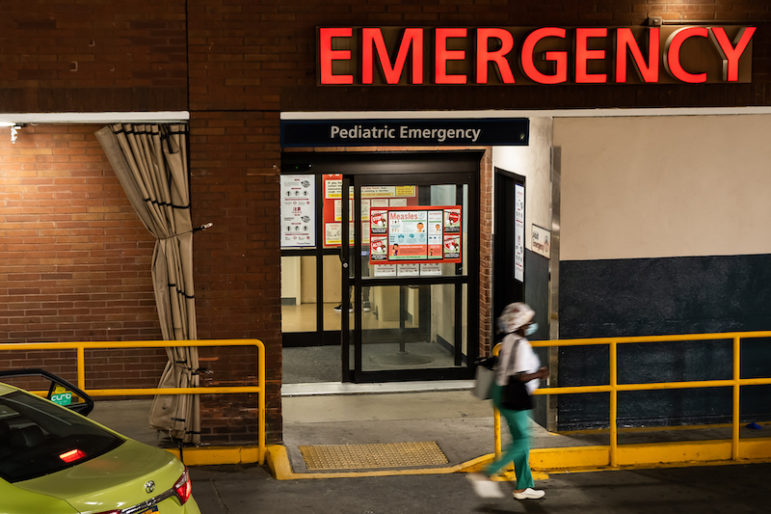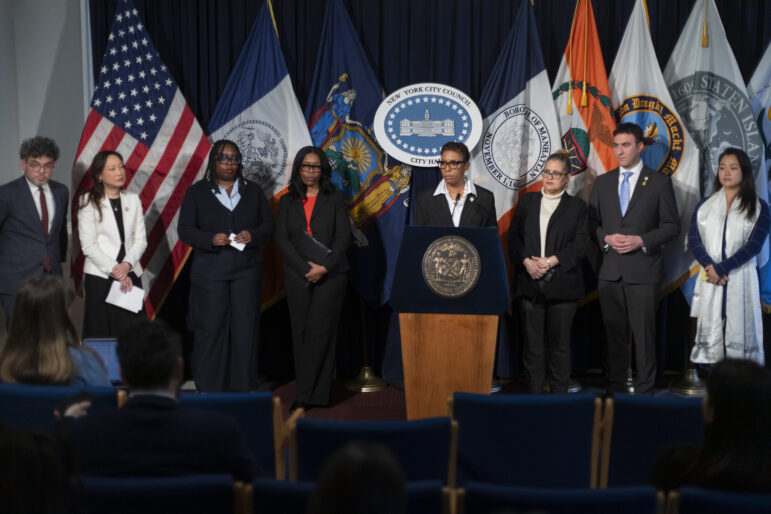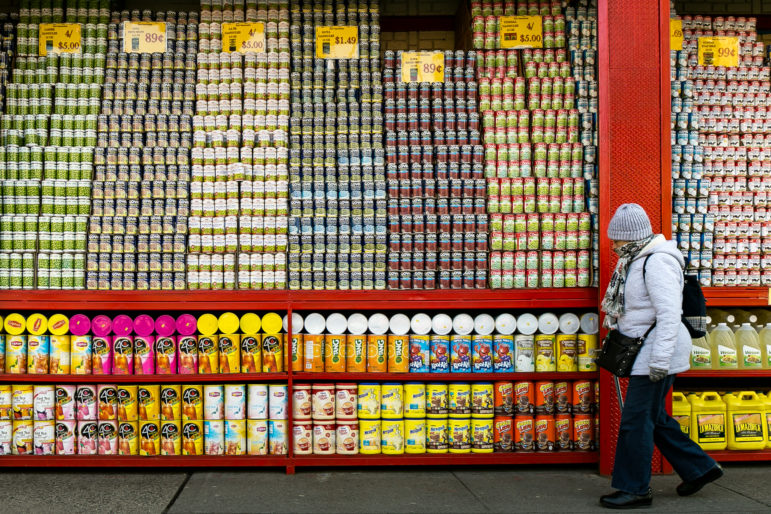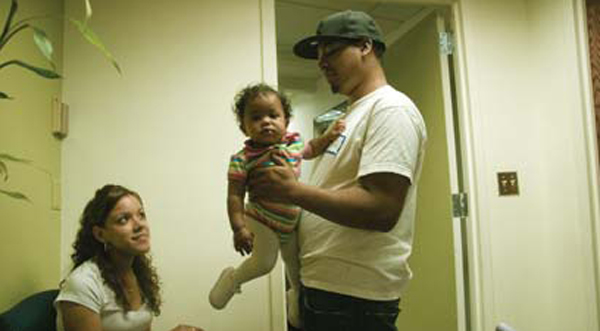
Photo by: Lizzie Ford-Madrid
David Patterson, 19, is learning how to be a dad.
When Taran Taylor, 19, discovered a little over a year ago that his girlfriend was pregnant, anxiety immediately set in. After all, the Crown Heights native was in his senior year at the High School for Arts, Imagination and Inquiry in Manhattan, and becoming a father was the last thing on his to-do list.
“I had mixed feelings. At first I wanted it, and then I didn’t,” recalls Taylor. “All I could think about was, How was I going to support the child? Am I going to go to school or get a job? What’s going to happen?” When he confided in his school guidance counselor about his personal dilemma, she encouraged him to contact the Lower Manhattan group New York Youth at Risk.
Since 1989, the nonprofit organization has provided black and Latino youth aged 12 to 25 across the five boroughs with a comprehensive range of mentoring support services.
In the group’s two decades of existence, its assorted programs have been geared toward teenage mothers, homeless youth, those from single-parent households and those with disabilities. But nearly seven years ago, New York Youth at Risk launched a multiservice program to support teen and youngadult fathers after securing a grant from the city’s Department of Youth and Community Development, along with federal support for the program. Each year, some 150 young fathers attend parenting workshops and receive individualized counseling, conflict mediation lessons and GED classes, along with job readiness training and referrals.
But in order to participate, expecting fathers must fit a certain criteria beyond meeting the 16-to-25 demographic. “They really have to be up to something,” explains Kirk Francis, the fatherhood program’s senior case manager and a chief architect in launching the initiative. “We tailor the program to their needs, so our job is really to support the things that they want. But they also have to be serious in that effort.”
Taylor wasn’t sure what to expect when he walked through the organization’s doors. After enrolling, he remained skeptical enough to miss scheduled appointments with organization staffers. His daughter— named London—was born during this period, and his joblessness began to fracture his relationship with his girlfriend. In short, things weren’t going well.
“I never felt comfortable talking to everybody, so I would just keep my feelings to myself,” he explains. “But my mother kept telling me that I’d blow up someday for no reason if I kept holding things in. So I just decided to give it a try.”
In doing so, Taylor has forged a father-son bond with Charles Anderson, 58, who serves as one of New York Youth at Risk’s staff counselors. “There’s a perception that black men are not involved with their children, and that’s the stereotype. But we have to look in the mirror too,” Anderson, who became a father at age 19, says, “I actually think that these men can be a much better father than I was at their age if we just give them the tools and the support.”
Enrolled fathers typically finish the program within six months, but their involvement with the organization can persist well beyond that period. That’s because New York Youth at Risk’s fatherhood initiative encourages their continuing participation in mentorship services and family-night events that are designed to promote healthier relationships for teenage and young adult parents after childbirth.
“Regardless of what their status as a couple might be, it’s an opportunity to bring everyone together and encourage workable partnerships for the sake of the family,” says Eurydice Robinson, who serves as program manager of the fatherhood project. “One of the false realities is that money is the biggest obstacle for these couples. Time is often the problem.”
Equally challenging, staffers concede, is the reality that scores of other young, expecting men will opt to take another path on learning that they’re fathers-to-be. “If this


